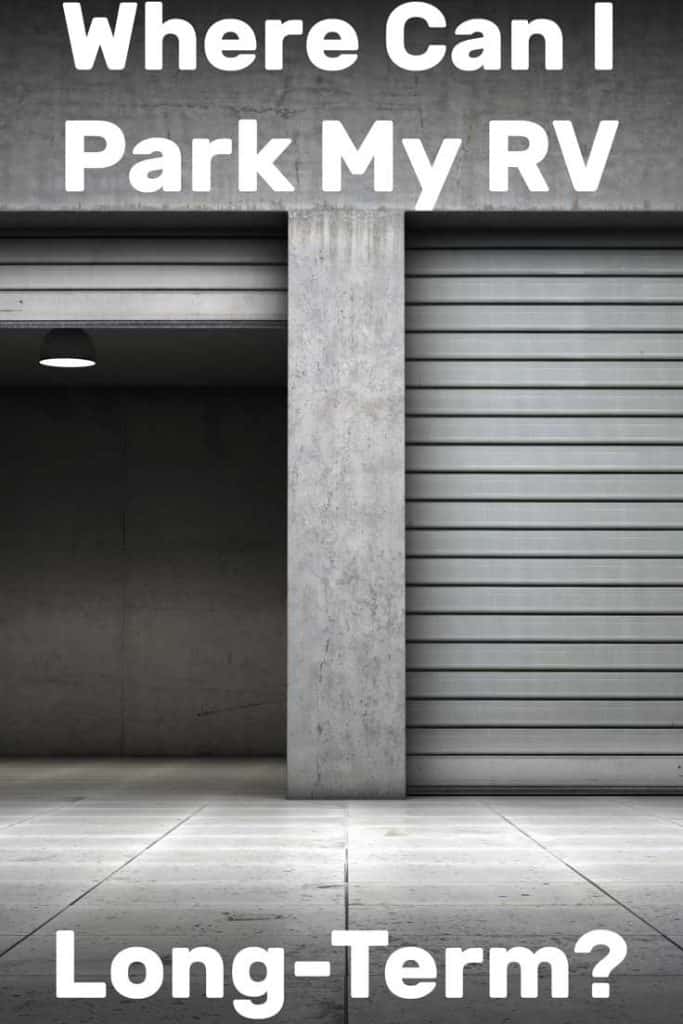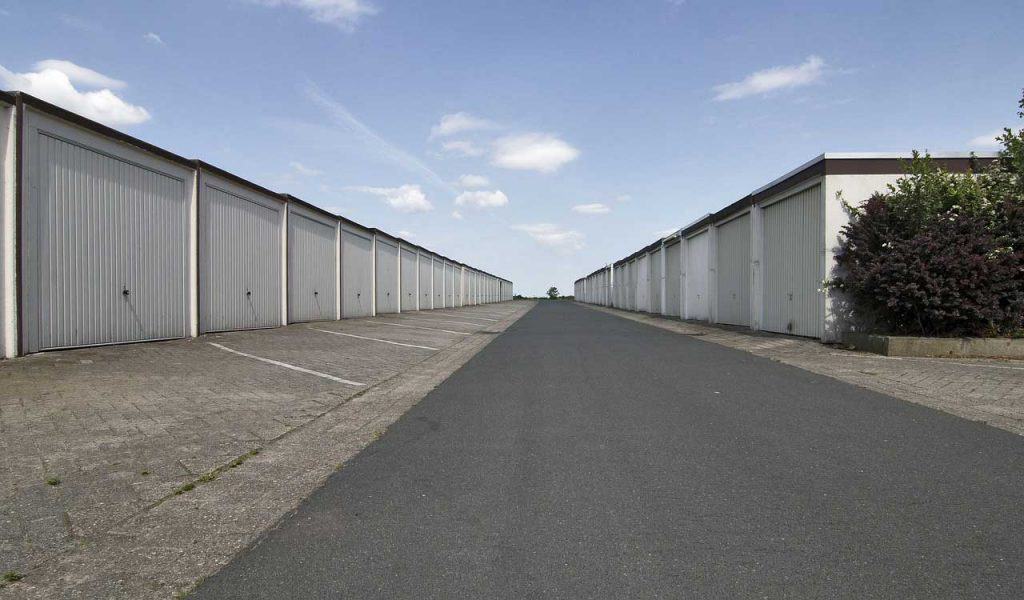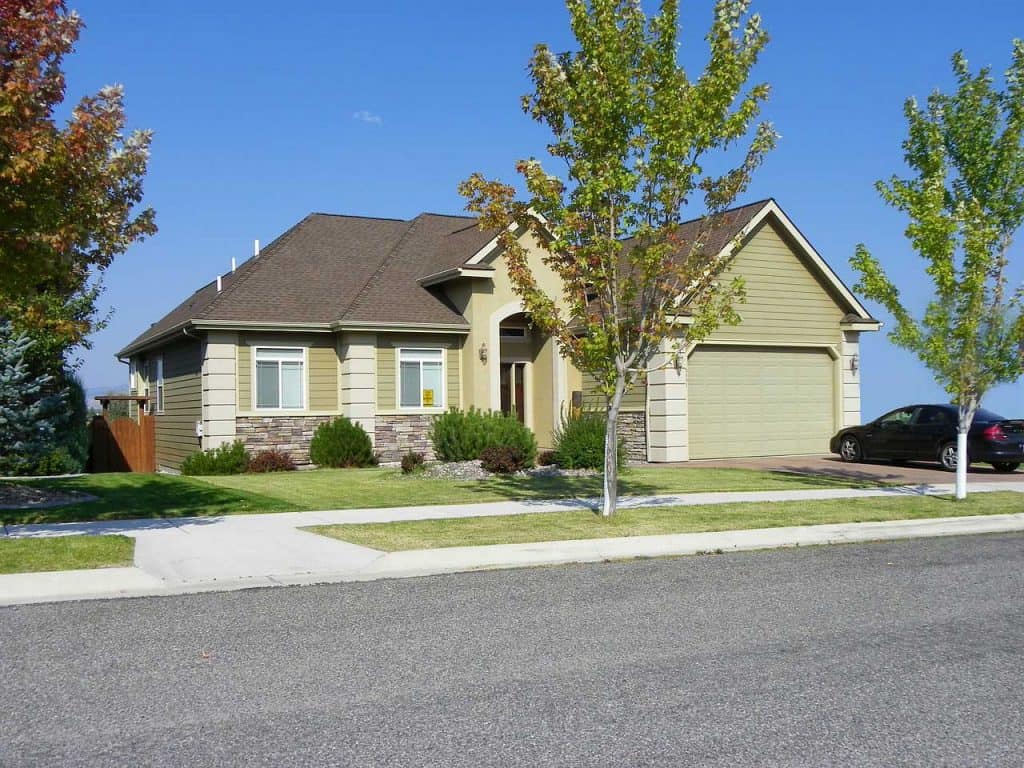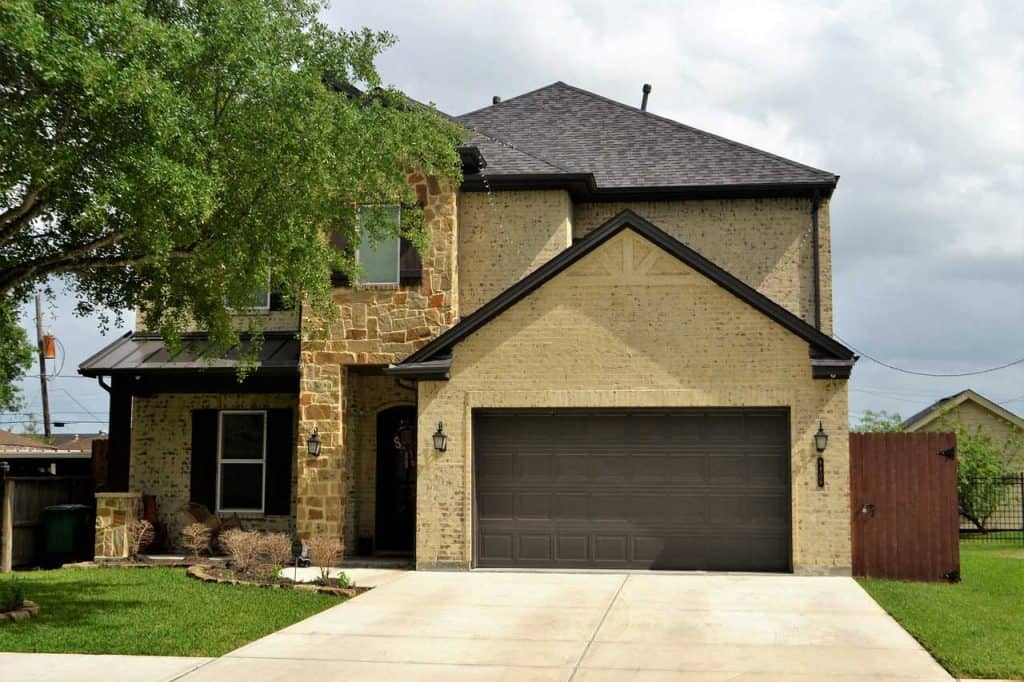As a first-time owner, you might wonder where you can park your RV long-term. After all, eventually winter rolls around and you can’t take any more trips until the spring. Where’s a safe place to stash your vehicle?
 There are many places you can park your RV long-term. These include:
There are many places you can park your RV long-term. These include:
- Storage facilities (indoor, outdoor, heated and unheated)
- Your garage
- Your driveway (depends on the size of the RV)
- The curb next to your house
- Your backyard
These options run the gamut from free to paid parking. Also, depending on which place you choose, you might need a permit. You’re definitely going to want to read on, as in this article, we’ll cover all your long-term RV parking options in-depth.
Where Can I Park My RV Long-Term?
Let's break down the options and see their pros and cons.
1. Storage Facilities
The first long-term parking option you have is one many RV owners rely on. It’s the use of a storage facility.
There are both indoor and outdoor facilities. With an outdoor facility, parking spaces are often plentiful. This is also a cheap option for RV storage.
Since your vehicle isn’t under any cover, it’s at risk of damage from the winter elements. These can include wind, snow, and rain.
An RV cover that’s waterproof and has UV protection will safeguard your RV as best it can. That doesn’t mean your vehicle is impervious to damage, though. You also have to make sure you properly winterized your RV, as anything you missed can freeze.
That’s why so many RV owners opt for indoor storage. You have two options here, heated or unheated storage. Indoor unheated storage is the cheaper of the two. While this storage does protect your vehicle from the elements, any interior or exterior components that weren’t winterized are at risk of freezing.

Indoor, heated storage is the most expensive, but you get the most protection for your RV. The temperatures in the facility are kept warm so that no parts of your vehicle can freeze. Your RV also remains safeguarded from outdoor weather.
According to Storage.com, here’s the price for RV storage at a facility:
- $30 - $100 per month for unheated, outdoor storage
- $50 - $125 per month for unheated, indoor storage
- $100 - $450 per month for heated, indoor storage
There are two factors that can influence storage facility costs. The first is location. The second is the size of your RV. If you have a Class A, you could pay more for storage than you would for a Class B or C.
2. Storing an RV in Your Home Garage
If you can’t afford to shell out that kind of money each month, that’s okay. You can always try fitting your RV in your garage.

Now, not every RV will be able to squeeze in this space, as we’re sure you can imagine. Class As will almost always be excluded unless you have a huge garage. RVs of smaller classes might be okay, but you want to measure your vehicle overhead to be sure.
If you use your garage for any other purposes, such as for storage or even as a workspace, you’d be sacrificing these for your RV. You’d more than likely have to clear everything out of your garage so you can back your vehicle inside.
In your garage, your RV is safe from rain, snow, and wind damage. However, it’s not safe from the cold. Most garages are unheated, after all.
You have two options to maintain your vehicle through a cold, long winter. The first is to go out to your garage at least weekly and check that no components of your RV are freezing. The second is to insulate your garage so it retains heat better.
3. The Home Driveway
Okay, so your RV won’t fit in your garage. Are you totally out of free options? Not by a longshot.
Your next choice is to keep your RV in your driveway. This isn’t as ideal as your garage since your vehicle sits exposed day in and day out. You’ll certainly need a sturdy, durable cover for this scenario. Since you’re not spending money on vehicle storage, you should splurge on a good cover instead.

There are more downsides to parking here. You can’t get any other cars in or out of the garage if your RV is in the driveway. You’ll have to park your other vehicles on the curb, which is a slight inconvenience.
Also, your RV is still at risk of freezing. You’ll have to be diligent in caring for it in the cold when you don’t necessarily want to be outside.
Finally, a hulking RV in your driveway can be kind of an eyesore. Still, it beats spending hundreds of dollars a year for a storage facility.
4. The Curb Next Your House
If your driveway isn’t available, you can always park your RV curbside.
This opens up a host of issues to be aware of. For instance, if you’re part of a homeowner’s association, you better check in with them before you park your RV on your street. Many HOAs have rules banning curbside parking. Some even won’t let you keep your RV in your driveway.
Even if you’re not part of a HOA, you might still break a law or ordinance. This is especially true if you move your RV to a public street. Many public streets have a 72-hour rule. If you park longer than that, your vehicle is at risk of being towed.
Although it’s not as legally taxing, you could also irritate your neighbors by parking curbside. Think about it from their perspective. They have to wake up each day and look at your giant RV blocking up most of their view of the street. If your RV is parked on the curb for months at a time, this can wear down your neighbor’s patience quick.
To avoid destroying your relationship with your neighbors, you should always ask them if you can park on the curb before you do it. They may say yes. If you’re legally allowed to, then park away! If your neighbors say no, you have to decide if you’d rather have a convenient parking spot or civility with your neighbors.
The last consideration you have to keep in mind with curbside parking is the risk of accidents. Your RV, especially if it’s a Class A or C, is quite bulky. It’ll protrude way out, much more so than other vehicles do. If you have a fast driver rush down your street, they could smash into the side of your RV.
5. Your Backyard
Your last parking option on your property is to make use of your backyard. A parking pad will come in handy here.
Read more: How to Create an RV Parking Pad at Home (In 5 Easy Steps)
You’ll first have to pave over part of your backyard so you have a stable place for parking your RV. It’s also important to ensure your vehicle has access to the necessary hookups.
Backyard parking is convenient. Once again though, your RV is at risk of freezing and succumbing to damage from the elements. You’ll have to diligently check it to make sure the vehicle stays in good condition over the winter. Also, you still need a cover.
The biggest concern with parking your RV in your backyard is again the legality of it. Depending on the regulations in your municipality, you could be blockaded from parking your RV here.
If you’re part of a HOA, chances are, this parking spot will be out of the question. Still, it never hurts to ask. Not a member of a HOA? You still need to know your local zoning laws. Sometimes you need a permit for backyard RV parking. Failing to have one could get you fined or in other, more serious legal trouble.
We recommend making sure you’re allowed to have your RV in your backyard before you make your parking pad. This will save you unnecessary time and hard work.
Where Can I Park My RV Short-Term?
Need overnight lodging on one of your adventures? You have plenty of free options.
Walmart, Cabela’s, and Other Retailers
For those who shop at Walmart, did you know you can park your RV there? The practice is so popular it has a name: Wallydocking. Only the Walmart Supercenters offer RV parking, and not every store does.
See more: Can I Park My RV at Walmart Overnight?
Can’t find a Walmart Supercenter nearby? No problem. If there’s a Cabela’s on your route, this is another parking option.
For decades, Cabela’s has been a destination store for those who enjoy fishing, boating, camping, hunting, and other outdoor activities. With over 50 stores in both the United States and Canada, you should be able to find one that accepts RVs.
If you do camp at Cabela’s, you’ll stay in their special RV parking section. This is separate from the parking lot for regular shoppers. Most Cabela’s have a free SaniStar dumping station, too, which is handy.
Like Walmart, never assume you can stay at any Cabela’s you see. Call and ask.
Cracker Barrel and Other Restaurants
Did you pass a Cracker Barrel on your drive? You might want to double back.
This restaurant accommodates RV owners such as yourself by allowing them to stay in the parking lot overnight. Like with a Walmart or Cabela’s, you want to get express permission about parking before you do so. Pop into the restaurant and ask the manager. While you’re there, you might as well enjoy a meal.
Staying at Cracker Barrel is free. The most you’ll pay for is the food. Not bad!
Casino, Church, and School Parking Lots
While it absolutely varies on a case-by-case basis, you can always try any casinos, churches, and schools you see on your road trip.
If you’re staying at a casino, the expectation is you will stop inside and spend some time gambling and playing. That said, the parking should be free.
Want to park overnight at a church? Avoid the weekends, as this is when churches are often busiest. Saturdays and Sundays are better for RV parking at school lots since few if any staff is around.
See more: Where Can I Park My RV For Free? (7 Actionable Suggestions)
Rest Stops and Truck Stops
Finally, you can always rely on rest stops and truck stops. Weary drivers of big rigs are always here to rest their eyes. You’re in the same boat, so you should be able to track down a spot to park even a bigger RV.
You won’t have to pay to stay at these stops, either.
In Summary
If you’re looking to park your RV long-term, you have many options. You can start at home, keeping your vehicle in your driveway, garage, curbside, or even in your backyard. If you’re legally allowed to do so and you won’t upset the neighbors, this is ideal parking. After all, it’s free.
RV parking facilities are another reliable option. It’s better to spend a bit of extra money on indoor, heated storage than risk your vehicle freezing outdoors.
Need short-term lodging? Many businesses you see on your travels can also accommodate you. These include restaurants like Cracker Barrel and stores like Cabela’s and Walmart. When passing by casinos, churches, and schools, you might be able to lodge here for free if the parking lot is empty. You can also try truck stops for a night of rest in your RV.
You’re never without options of where to keep your RV. Happy travels and happy parking too!

An RV can be stored in a storage unit, with both indoor and outdoor choices. Keep in mind that the cost of storing an RV varies depending on a variety of factors, including the location and size of the storage facility.